Resource Highlights
In this article, we put the record straight with a few home truths about diesel…proving why it’s both an important part of many automaker’s line-up, and a popular choice for vehicle owners. And will be for many, many years yet.
Four years on, and the aftermath of the diesel emissions scandal continues to hamper consumer confidence in diesel. Once accepted as, and still very much today, a super clean, efficient fuel source, its reputation has been tarnished in recent years, thanks largely to often inaccurate and misinformed headlines in the media. Here, Delphi, a global pioneer in propulsion technologies, solutions and services, puts the record straight with a few home truths about diesel…proving why it’s both an important part of many automaker’s line-up, and a popular choice for vehicle owners. And will be for many, many years yet.
1. Diesel vehicles have the lowest Carbon Dioxide (CO2) emissions of current fuel sources:
- Diesel fuel has higher energy content per liter than other transport fuels.
- Diesel engines are also more thermodynamically efficient, meaning they convert more of this energy content into useful work.
- Because of this, diesel cars consume about 25% less fuel by volume than equivalent gasoline cars.
- Diesel cars also generate about 15% less CO2 per kilometer than equivalent gasoline cars.
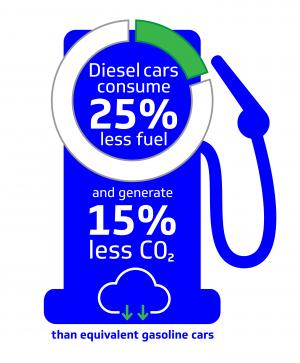
2. Diesel is a key contributor to meeting CO2 reduction goals:
- Road transport contributes to about 20%1 of total man-made greenhouse gas emissions, mainly CO2.
- Diesel remains key to many automakers strategies in reducing CO2 emissions and meeting increasingly stringent regulation.
- When used with the emission control systems fitted to many modern vehicles, it will help to reduce CO2 emissions beyond the new targets agreed by the European Union (EU) in December 2018.
- Average CO2 emissions generated by new cars increased by 2.4 g CO2/km to 120.5 g CO2/km in 20182 – the highest average of the last four years. Along with the rising popularity of SUVs, declining new diesel car sales have been a key contributing factor.
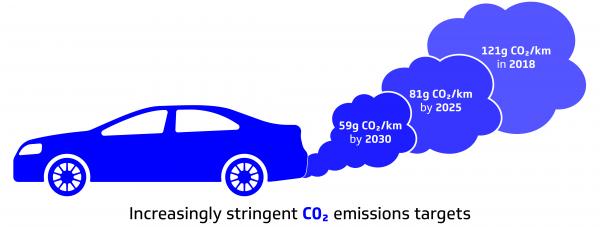
3. Diesel is a cost-effective and popular solution for many users:
- Diesel’s high fuel economy ensures lower fuel costs and longer range between refuelling stops.
- Diesel engines provide high torque, enabling load-carrying, towing, and safe overtaking.
- Diesel remains the predominant fuel source for heavy and light commercial vehicles.

4. Clean diesel technology successfully controls emissions including under real-world conditions:
- As per European emission standards, emissions of Particulate Matter (PM), including soot, reduced by 97% from 140 mg/km in Euro 1 to 4.5 mg/km in Euro 6.
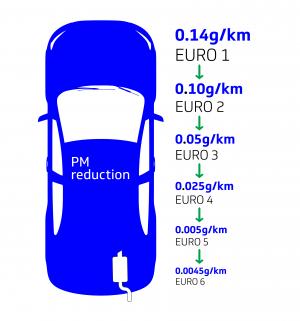
- Similarly, Nitrogen Oxide (NOx) emission levels reduced by 84% from 500 mg/km in Euro 3 (when NOx was first measured) to 80 mg/km in Euro 6.
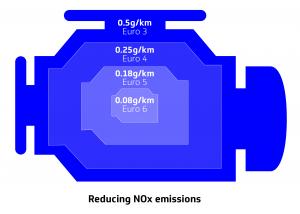
- The introduction of Real Driving Emission (RDE) tests, to more accurately reflect the actual emissions performance of vehicles on the road, has played an important role in the uptake of very efficient NOx reduction aftertreatment technologies.
- According to ADAC, Euro 6d-TEMP diesel vehicles emit an average of 76% less NOx than Euro 6b diesel (pre-RDE) and 85% less than Euro 5 diesel3.
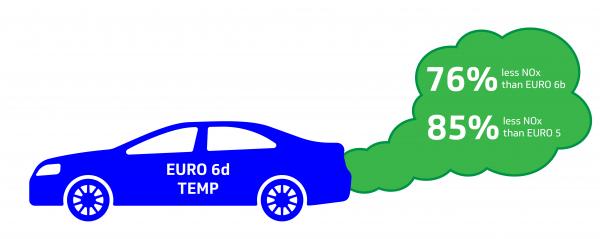
The facts speak for themselves
So, for all the talk, it’s clear that diesel is still a super-clean, super-efficient fuel. Because of this, it will remain an important option in the majority of automaker’s portfolios. A popular choice for many vehicle owners. And crucially for the aftermarket, an increasingly common sight in workshop bays across the globe, with more and more diesel drivers seeking high-quality, high-value repairs for many more years to come. Now that’s a fact that’s worth talking about.
Check back here shortly, for more on the growing diesel service opportunity.
- ACEA publication Nov 2014 + potential for further controls of emissions from mobile sources in Europe’, TSAP Report #4 V2.0 – Jens Borken-Kleefeld & Leonidas Ntziachristos, November 2012
- JATO Dynamics - covering 23 markets in Europe
- https://www.adac.de/rund-ums-fahrzeug/abgas-diesel-fahrverbote/abgasnorm/euro-6d-temp/
SIGN UP
TO FIND OUT MORE
Fill out your details to hear more from our experts and get the latest updates from Delphi.




